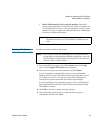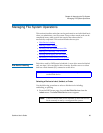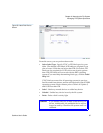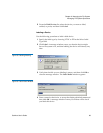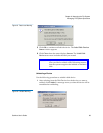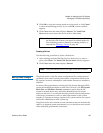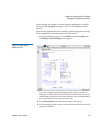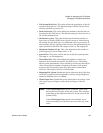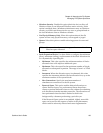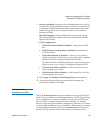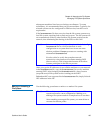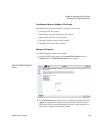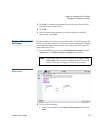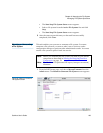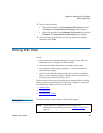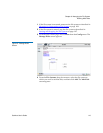
Chapter 6 Managing the File System
Managing File System Operations
StorNext User’s Guide 103
• Windows Security: Enable this option (check the box) to allow all
Windows clients to use Microsoft Windows native security. If this
option is enabled, then a Windows administrator may set Windows
security on all files and directories for any user or group defined on
the local Windows client or Windows domain.
• Use Physical Memory Only: When this option selected, the file
system will use only physical memory, not swapped or paged.
• Quotas: Select this option to enable enforcing quotas for users and
groups.
• Inode Expansion Blocks: Use these fields to configure the minimum
(floor), maximum (ceiling), and increment of the block allocation size
for a dynamically expanding file.
• Minimum: This value specifies the minimum number of blocks
allocated when a file requires additional space.
• Maximum: This value specifies the maximum number of blocks
allocated on subsequent expansion. The range is from 1 to 32768
blocks.
• Increment: When the allocation space is exhausted, this value
specifies the increment added to the last allocation size, up to the
maximum number of file system blocks.
• Max Connections: Specify the maximum number of
simultaneous connections for the file system.
• Reserved Space: This option enables delayed allocations on
clients. Reserved space is a performance feature that allows
clients to perform buffered writes on a file without first obtaining
real allocations from the metadata controller. The allocations are
later performed when the data is flushed to disk in the
background by a daemon performing a periodic sync.
If the Reserved Space option is not enabled, slightly more disk
space can be used at the expense of buffer cache performance,
which could be adversely affected and cause fragmentation.
Note: Quotas are based on actual usage, and are not enforced
based on space allocated.



